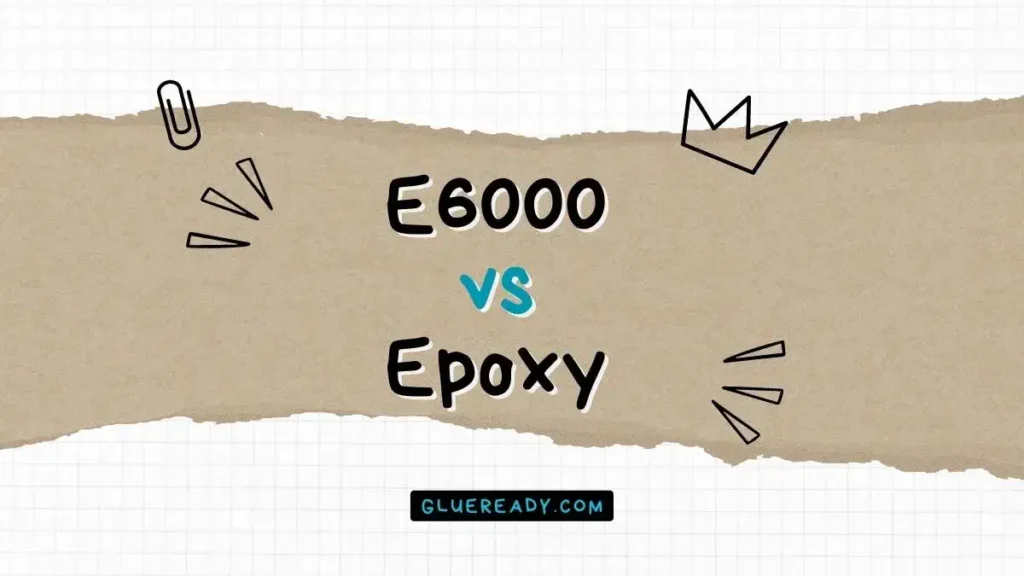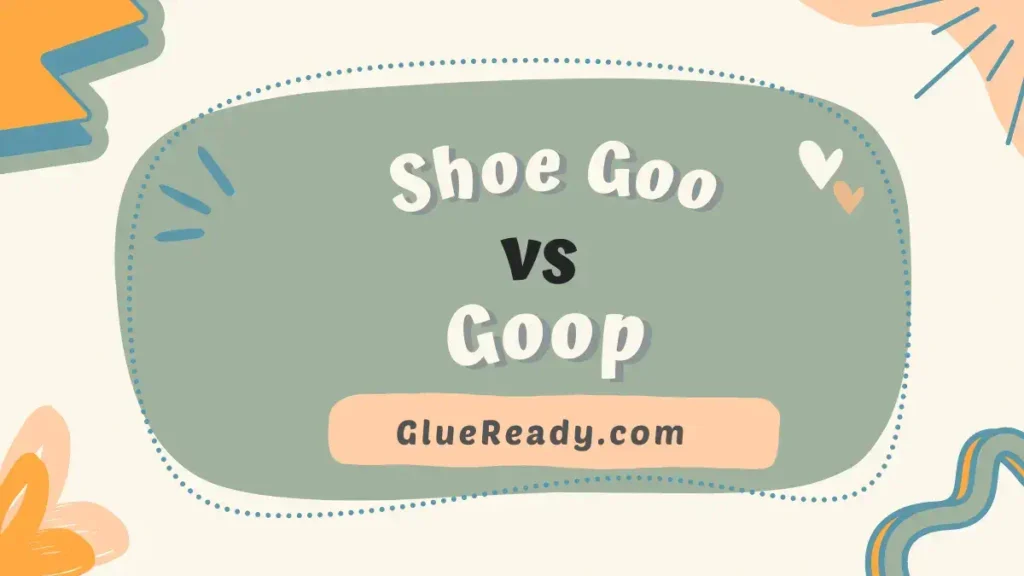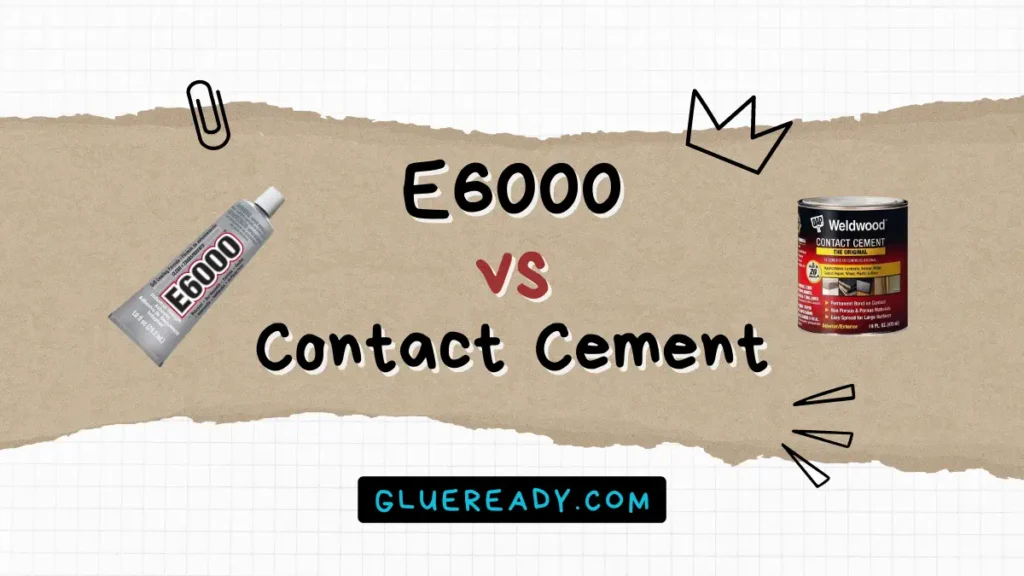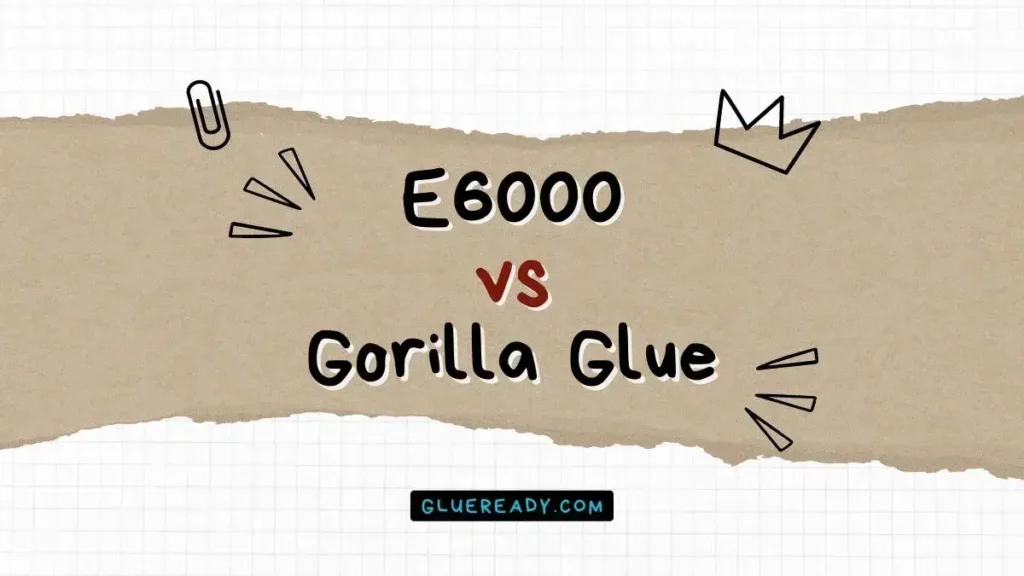Shoe Goo vs Gorilla Glue | In-Depth Analysis

Shoes are essential items that we use every day, but they can also get damaged or worn out over time.
Whether it’s a broken sole, a ripped fabric, or a loose heel, you might need to repair your shoes at some point. But what kind of glue should you use to fix your shoes?
There are many options available, but two of the most popular ones are Shoe Goo and Gorilla Glue.
Shoe Goo is more flexible, easier to apply and remove, but takes longer to dry, and might not be as strong as Gorilla Glue.
In this article, I will compare shoe goo vs gorilla glue and see which one is better for shoe repair.
Read More: Shoe Goo Review
What is Shoe Goo?
Shoe Goo is a special glue that is designed specifically for repairing shoes.
It is made of toluene, styrene-butadiene, and solvent naphtha, which are synthetic rubber compounds that can bond well with various materials.
Shoe Goo can be used as both an adhesive and a sealant, meaning that it can stick different parts of the shoe together and also fill in small gaps or holes.
Shoe Goo works well with rubber, leather, canvas, vinyl-plastic, and other common shoe materials.
One of the advantages of Shoe Goo is that it dries clear and flexible, making it less noticeable and more durable.
Shoe Goo can also withstand water, heat, and cold, making it suitable for outdoor shoes.
Shoe Goo can be used to repair different parts of the shoe, such as soles, heels, waders, tips, and fabric.

What is Gorilla Glue?
Gorilla Glue is another popular glue that can be used for various purposes.
It is made of polyurethane, which is a plastic resin that can bond strongly with many materials.
Gorilla Glue claims to be able to bond virtually anything, from wood and metal to glass and ceramic.
Gorilla Glue can also be used for shoe repair, especially for leather or rubber shoes.
One of the benefits of Gorilla Glue is that it is also clear and flexible when dry, making it compatible with different colors and shapes of shoes.
Gorilla Glue is also resistant to water, temperature changes, and impact, making it ideal for tough and rugged shoes.
Gorilla Glue sets quickly and firmly, creating a long-lasting bond between the shoe parts.

Read More: Hot Glue vs Gorilla Glue
Shoe Goo vs Gorilla Glue Comparison Table
| Feature | Shoe Goo | Gorilla Glue |
| Type of Glue | Industrial glue made specifically for repairing shoes | General-purpose glue that bonds virtually everything |
| Color | Clear or Black | Clear or Brown |
| Bonding Strength | Strong but flexible | Very strong and rigid |
| Curing Time | 24 to 72 hours | 10 to 45 minutes |
| Water Resistance | Good | Very Good |
| Suitable Materials | Rubber, leather, canvas, vinyl-plastic, and other common shoe materials | Virtually anything, including wood, metal, glass, ceramic, leather, and rubber |
| Suitable Parts | Soles, heels, waders, tips, and fabric | Soles and large parts |
Differences Between Shoe Goo and Gorilla Glue
While both Shoe Goo and Gorilla Glue are effective glues for shoe repair, they also have some differences that might affect your choice. Here are some of the main differences between them:
Application
Shoe Goo comes in a tube that can be squeezed directly onto the shoe surface.
It has a thick consistency that allows you to control the amount and spread of the glue.
Gorilla Glue comes in a bottle that has a nozzle tip. It has a thin consistency that requires you to dampen the shoe surface before applying the glue.
You also need to clamp the shoe parts together until the glue sets.
Drying Time
Shoe Goo takes longer to dry than Gorilla Glue.
Shoe Goo needs about 24 hours to fully cure, while Gorilla Glue needs only about 2 hours.
However, this also means that Shoe Goo gives you more time to adjust the position of the shoe parts before they stick together.
Flexibility
Both Shoe Goo and Gorilla Glue are flexible when dry, but Shoe Goo is more flexible than Gorilla Glue.
Shoe Goo can stretch and bend more easily without cracking or breaking.
This makes Shoe Goo better for shoes that need more movement or flexibility, such as sneakers or boots.
Removability
Both Shoe Goo and Gorilla Glue are hard to remove once they dry.
However, Shoe Goo can be peeled off or scraped off with some effort if you make a mistake or want to change something.
Gorilla Glue is almost impossible to remove without damaging the shoe material or using a special solvent.
Read More: Shoe Goo vs Rubber Cement
Frequently Asked Questions (FAQs)
Can I Use Gorilla Glue Instead of Shoe Glue?
Yes, you can use Gorilla Glue instead of Shoe Glue, but it depends on the type of shoes and the material you want to bond.
Gorilla Glue is stronger, faster, and more water-resistant than Shoe Glue, but it is also less flexible and may not work well on some fabrics or leather.
Can Shoe Goo Be Used as Glue?
Yes, Shoe Goo can be used as glue for shoe repair and other purposes.
Shoe Goo is a special glue that’s great for repairing shoes, but it can also bond well with various materials such as rubber, leather, canvas, vinyl-plastic, and more.
Is Shoe Goo the Same as Super Glue?
No, Shoe Goo is not the same as Super Glue. Shoe Goo is a special glue that is designed specifically for repairing shoes, while Super Glue is a general-purpose glue that can bond many materials.
Shoe Goo is more flexible and can stretch and bend without cracking, while Super Glue is less flexible and creates a rigid bond.
Final Thoughts
Shoe Goo and Gorilla Glue are both excellent glues for shoe repair, but they have different strengths and weaknesses. Depending on your needs and preferences, you might choose one over the other.
Shoe Goo is better for shoes that need more flexibility or have small gaps or holes to fill in. It is also easier to apply and remove than Gorilla Glue.
However, Shoe Goo takes longer to dry and might not be as strong as Gorilla Glue.
Gorilla Glue is better for shoes that need more strength or have large parts to bond together. It is also faster to dry and more resistant to water and temperature than Shoe Goo.
However, Gorilla Glue is harder to apply and remove than Shoe Goo and might not be as flexible as Shoe Goo.






